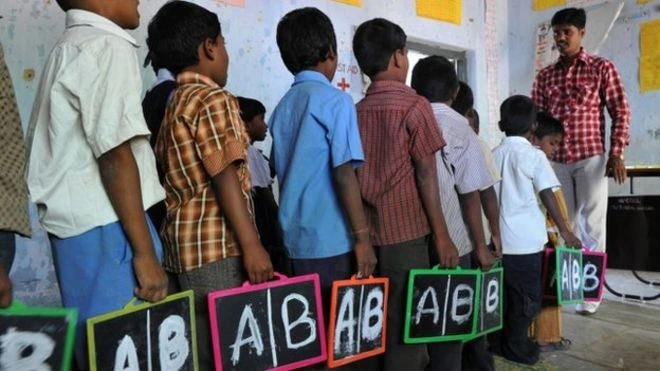We have already discussed the changes that the National education policy 2020 proposes to bring to the Indian education system. Many experts claim that the new policy is the revival of our ancient system of education, which was based on the idea that the purpose of education is to prepare students for their roles in society. In our discussion today we will try to analyze whether the NEP 2020 is a new model of education or a revival of our ancient system of education.
As per the NEP 2020 document released by Ministry of education the vision of this new policy is to transform India into a equitable and vibrant knowledge society, by providing high-quality education to all, and thereby making India a global knowledge superpower. The document also states that the purpose of this education system is also to make students aware of their constitutional duties and their role in the society. The policy also wants students to feel proud of the India’s achievement in the field of education and use the ancient knowledge to solve the upcoming world challenges. It is clear from the statement that the aim of NEP 2020 is to prepare students for their active role in the society and revive the ancient knowledge.
The biggest difference between the present education system and the ancient education system is that the present education system was developed by the British to train people for taking jobs in different sectors and this was the time of the industrial revolution, when societies were changing as per the requirement of industries. We have seen that when factories first came up in cities and towns, people migrated to these cities, and ultimately mega cities like Mumbai, Kolkata, and Chennai came into existence. But now societies have changed and now societies are not dependent on factories and industries, instead, industries are molding themselves as per the need of the societies. So in the present system societies are the dominant factor, not industries. Similar was the situation of ancient times, society was the deciding factor, and education was not limited to institutions it was a way of life. The present education system also want to make education a part of life, so that students can find solutions to problem around them. It would be wrong to say that people don’t need a job now and societies can feed them, but the pattern of jobs must be changed, for this increasing population we have to make jobs multidisciplinary, traditional jobs cannot solve the problem of unemployment.
In the present system of education we have a clear division between categories of subjects, whereas the ancient system of education was multidisciplinary, there was no clear-cut distribution of subjects, instead, students were trained as per their interest. we have a lot of great personalities like Chanakya, who have simultaneously produced great texts on law, philosophy, economy, etc. A complex society needs multidisciplinary knowledge to solve complex issues and NEP 2020 wants to revive the old system of multidisciplinary education.
The ancient knowledge has remained unexplored since ages. Ancient Indian knowledge in the field of metallurgy, philosophy, spirituality, medicine, yoga, language, art and others is unmatched. This ancient knowledge must be integrated with the present system of education so that a perfect blend of culture and knowledge can be obtained. NEP 2020 clearly outlines its plan to integrate present system with ancient knowledge, for this first of all a special institute for translation will be developed and at a later stage more research will be carried out based on the ancient texts. New policy not only tries to revive the ancient system of education but it also aims to revive the ancient knowledge. Though technology will be actively used in this process but the approach will be to revive the ancient system of education.

Since the admin of this web page is working, no doubt very quickly it will be well-known, due to its feature contents.